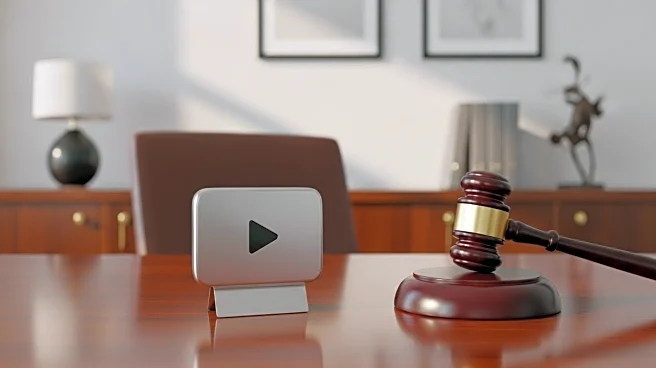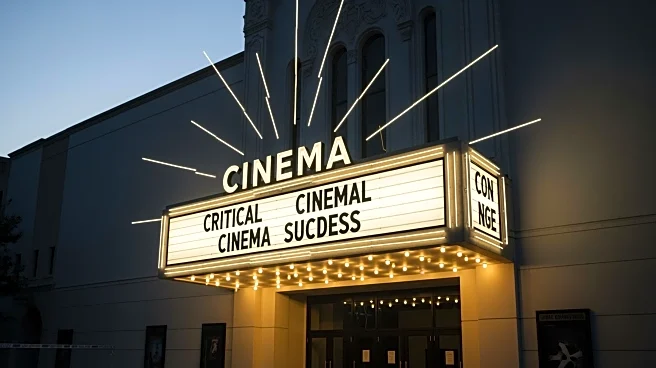What is the story about?
What's Happening?
YouTube has agreed to pay President Trump $24.5 million to settle a lawsuit stemming from the suspension of his account following the January 6, 2021, Capitol riot. The lawsuit, filed in 2021, alleged that YouTube's actions constituted censorship. The settlement includes a provision where $22 million will be allocated towards constructing a ballroom at the White House, with the Trust for the National Mall financing the renovations. This settlement follows similar agreements with other tech companies, including Meta and Elon Musk's X, which paid $25 million and $10 million, respectively, over related allegations. Despite the settlements, free speech experts have noted that the lawsuits lacked credible legal claims, as First Amendment protections typically do not apply to private companies. The settlements are seen as a significant shift for Silicon Valley, which has historically defended its right to moderate content on its platforms.
Why It's Important?
The settlement marks a notable shift in the relationship between Silicon Valley tech giants and political figures, particularly President Trump. By agreeing to these settlements, tech companies may be attempting to navigate the complex landscape of content moderation and political influence. The financial settlements could set a precedent for how tech companies handle similar disputes in the future, potentially impacting their content moderation policies and legal strategies. The decision to settle rather than litigate these cases may reflect a strategic move to avoid prolonged legal battles and public scrutiny. Additionally, the allocation of funds for White House renovations highlights the intertwining of political and corporate interests, raising questions about influence and transparency in such agreements.
What's Next?
The settlements may prompt other tech companies to reassess their content moderation policies and legal strategies, especially in politically sensitive cases. There could be increased scrutiny on how tech platforms balance free speech with the need to prevent misinformation and harmful content. The settlements might also influence future legislative discussions around Section 230, the federal law that provides tech platforms with broad immunity over user-generated content. As tech companies continue to navigate these challenges, they may face pressure from both political figures and the public to clarify their content moderation practices and ensure transparency in their decision-making processes.
Beyond the Headlines
The settlements highlight the ongoing debate over the role of tech companies in moderating content and their influence in political spheres. The intertwining of corporate settlements with political interests raises ethical questions about the potential for influence-peddling and the transparency of such agreements. The construction of a ballroom at the White House, funded by a settlement, underscores the complex relationship between corporate actions and political outcomes. This development may lead to broader discussions about the ethical implications of corporate settlements that involve political figures and government institutions.















